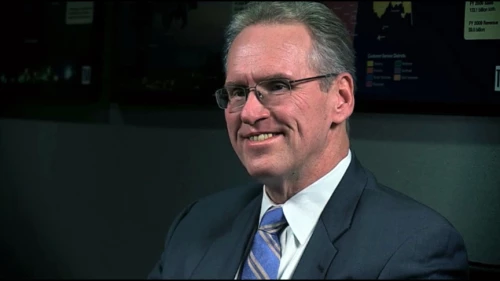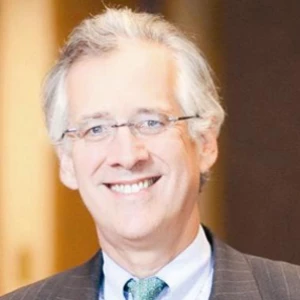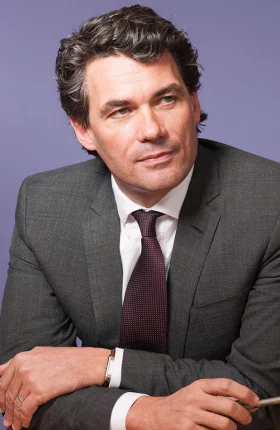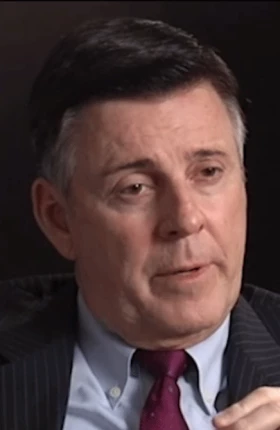First dates, first impressions, and especially the first 100 days of a CEO’s tenure matter. Bill Johnson, the new CEO of the Tennessee Valley Authority (TVA), was certainly aware that his early moves were under scrutiny and that his early decisions would shape and define his ability to lead.
Accordingly, Johnson has spent more time listening than talking and more time asking questions than making bold declarations. He intends, at least initially, to go slowly and work with the senior team of executives who were already in place rather than to institute change—and a reshuffling of the executive suite—for the sake of change.
TVA is a federally owned power provider created during the Great Depression to spur economic development in Tennessee and surrounding rural communities. As such, it plays a special role in the region beyond that of a traditional utility. Johnson says that he expects to look to public officials and the public at-large in the Tennessee Valley for support—“that community and family feel that we are all in this together,” in his words—in running the largest publicly owned utility.
His early agenda will focus on keeping rates low, spending capital wisely, and operating efficiently. As he puts it, “There are only about three things that are really important. The rest sort of takes care of itself, especially if you have a great team around you.”
Johnson recently sat down for a discussion with David Gee, a partner and managing director at The Boston Consulting Group. Edited excerpts from that conversation follow.
About Bill Johnson
At a Glance
Born in Kane, Pennsylvania
Year born: 1954
Education
Bachelor of law, University of North Carolina School of Law at Chapel Hill
Bachelor’s degree, Duke University
Career Highlights
2013–present President and Chief Executive Officer, Tennessee Valley Authority
2007–2012 Chairman, President, and Chief Executive Officer, Progress Energy
2005–2007 Chief Operating Officer, Progress Energy
1992–2005 General counsel and several operating roles, Progress Energy
1982–1982 Partner, Hunton & Williams, and Law Clerk, J. Dickson Phillips Jr., U.S. Court of Appeals for the Fourth Circuit
Outside Activities
Distinguished Alumni Award, University of North Carolina
Former Chairman, Nuclear Energy Institute
Former Vice Chairman, Edison Energy Institute
Former lineman, Pennsylvania State University football team
You have been the CEO at TVA for 26 days. Before that, you were the CEO at Progress Energy for five years, where you spent a total of 20 years. Based on your previous tenure as a CEO, what do you think you will do differently at TVA?
I was at Progress for about 20 years. I came up through the ranks, starting as a lawyer and ending up as the CEO. I was a well-known commodity there. Everybody knew me. Everybody knew what I thought. It’s a little different here. Most people don’t know me. But even though I come as an outsider to the organization, the behaviors, I think, are pretty much the same, especially in the early days. What I am focusing on is listening, being visible, learning, and not saying very much, which is kind of uncharacteristic for me.
What leadership style do you want to demonstrate at TVA?
When I think about leadership style, I think about the effect we are having on others. Leadership is essentially about influencing other people. I have found that most people like predictability in their leaders. I am not going to get too excited with good news. I am not going to get too down with bad news. I am going to be pretty laid back. I want people to know how I am going react, so they are willing to tell me anything. I am sort of laid back anyway. I am a longtime Grateful Dead listener, so that influenced me.
I couple that with intensity. We have a great mission here, a mission that matters every day to 9 million people. If that does not excite you and make you want to bring your best game every day, I do not know what would.
Given all of the changes underway within the industry and the changes here at TVA, what things do you need to learn before you start making decisions?
We have this great benefit here of having customers, elected officials, and communities who really want to help us help them with economic development and environmental stewardship. One of the great benefits that we need to maximize is that community and family feel that we are all in this together.
Are there specific decisions here at TVA that you’ll need to make in your first year?
The biggest decision we have is: are we spending capital in the right places? We have a $2 billion dollar a year capital-expenditure budget. That is a lot of money, and it affects rates. Are we putting the money in the best place, and are we as efficient and as effective as we can be? One of my catch phrases is “safer, better, faster, cheaper.”
How would you define the ideal leadership team for you at TVA?
My general objective is to go slow. Listen, be deliberate, and learn. I come here as part of a natural succession with a CEO who retired. He had a senior team in place. We are still getting to know each other and figure out how we are going to work together. But, in general, I am not in favor of the idea that we are going to stock the team with all-stars. I want a team that operates as a team.
As you go around TVA, how will you listen in order to understand the context and build the respect of the organization?
I have been listening to employees, but I have also been speaking to them. Then I typically will say, “I have been on the road here for 15 days. Here are some observations about TVA, about how we behave here, about what we think is important. Do you think I’m on the right track? Give me feedback.”
Or “I have observed this safety behavior, and it is not very good. What do you think? I have observed this organizational behavior. It seems odd to me. What do you all think?” These are things that organizations typically do not hear their leaders talking about.
If you give people the opportunity, in a safe way, to share something with you, you will give them a reason to trust you and have confidence in you as long as you do something about it. One of the worst mistakes we make is that we get feedback and we ignore it. When you do that we disrespect people, we teach them not to say anything, and these are very unhealthy attributes.
Do you have any other advice based on your experiences for other incoming CEOs as they face their first hundred days?
You are now a CEO. You are an important person. You think you are expected to know everything and get everything right. That is really not the expectation people have of you. What most people are looking for in their leader is leadership. How do you treat me? How do you treat employees? What do you think of the customers?
Focus on the important things. There are only about three things that are really important. The rest sort of takes care of itself, especially if you have a great team around you.







